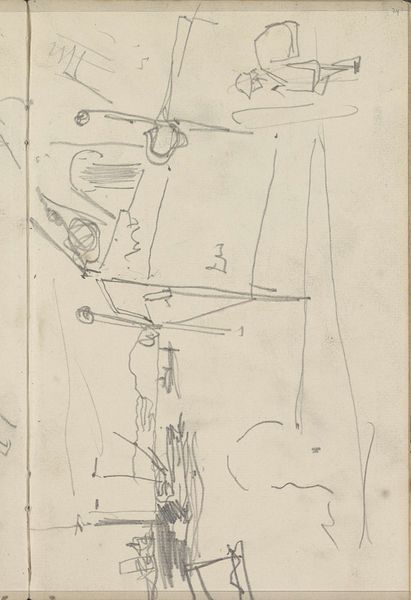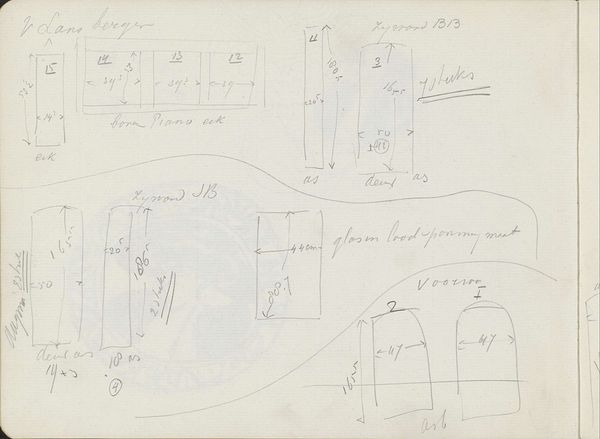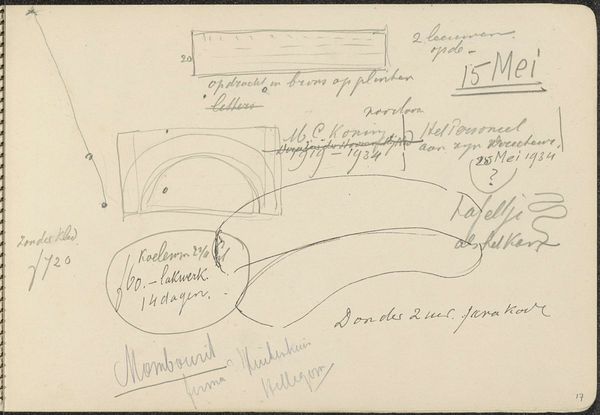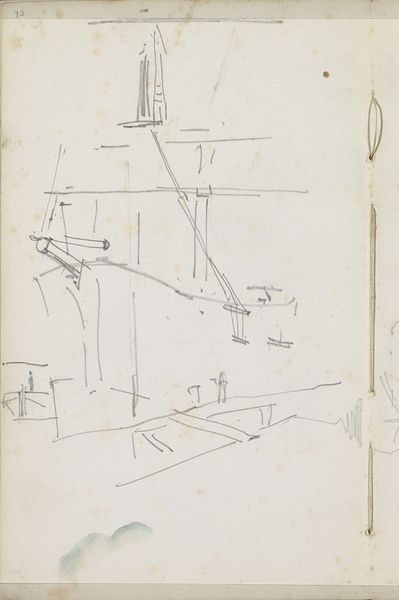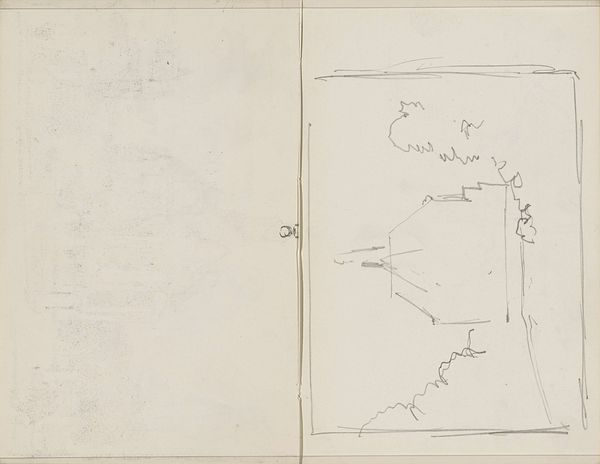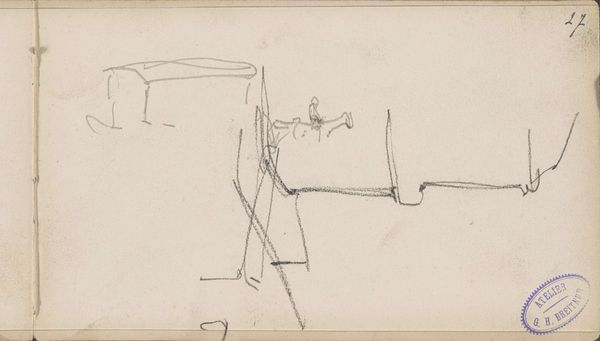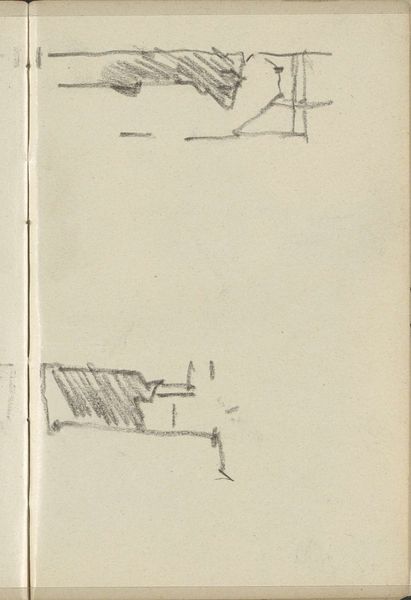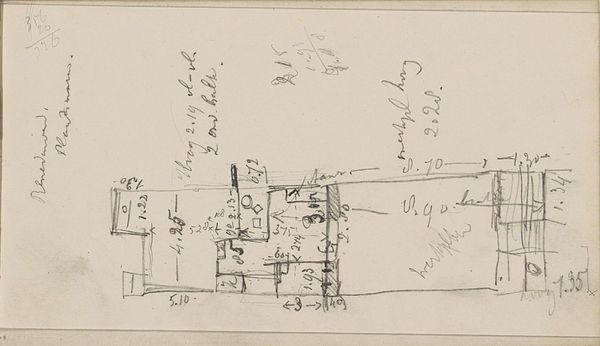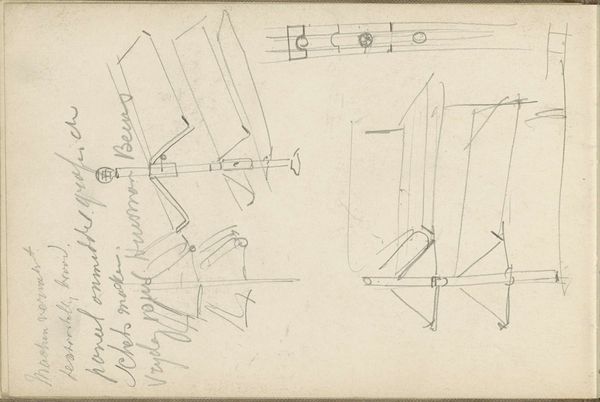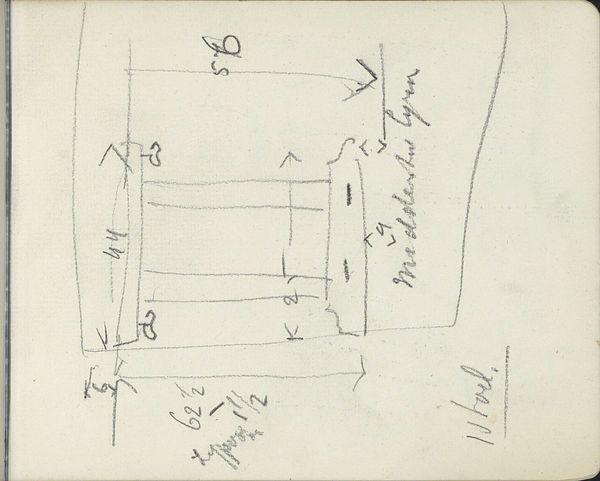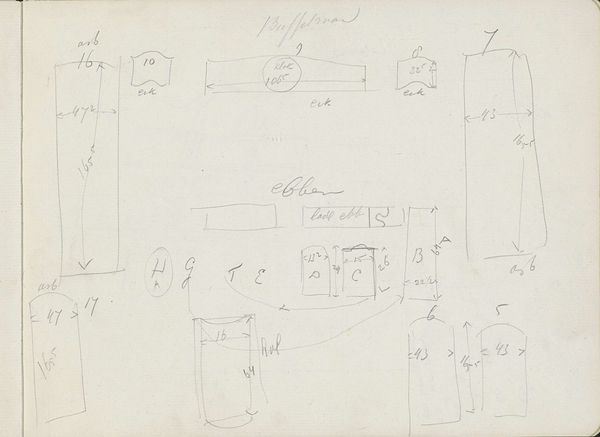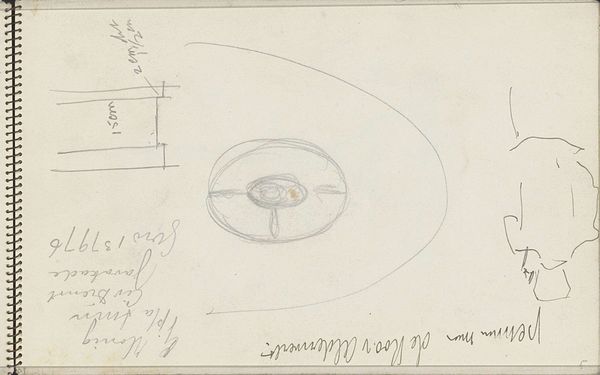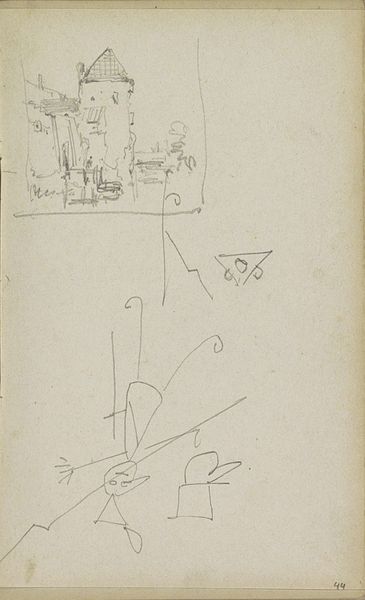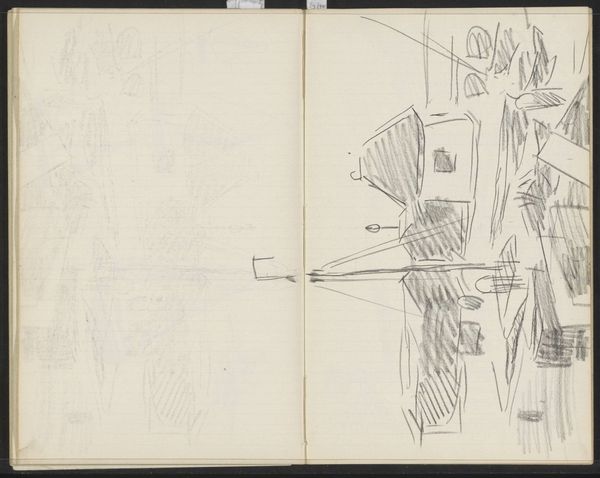
drawing, ink, pencil, architecture
#
drawing
#
hand drawn type
#
personal sketchbook
#
ink
#
idea generation sketch
#
sketchwork
#
ink drawing experimentation
#
geometric
#
pen-ink sketch
#
pencil
#
line
#
pen work
#
sketchbook drawing
#
cityscape
#
storyboard and sketchbook work
#
sketchbook art
#
modernism
#
architecture
Copyright: Rijks Museum: Open Domain
Editor: We're looking at "Patrijspoort en een plattegrond," or "Porthole and a Floor Plan," a drawing in ink and pencil by Carel Adolph Lion Cachet, dating from around 1906, currently held in the Rijksmuseum. It looks like a page torn from a sketchbook, a collection of architectural ideas, very minimal, linear... Almost sterile, despite being hand-drawn. What can you tell me about this piece? Curator: Consider first the interplay of forms: the strict geometry of the floorplan contrasted with the curve of the porthole. Note also the presence of measurement markings throughout the design. Do these quantitative notations clash or harmonise with the organic quality of the hand-drawn lines? Editor: I see what you mean. It's like the artist is balancing precision with spontaneity. Is the juxtaposition deliberate, to your eye? Curator: The stark, utilitarian aesthetic certainly contrasts the implied freedom of an artist's notebook. We might also think about the placement of the porthole itself – does it serve merely as a decorative element, or does its circular form offer a symbolic counterpoint to the angularity of the floorplan? Editor: That's interesting, because without it, the drawing could easily be confused for a diagram, and it moves the entire piece closer to a creative sketch than technical drawing. Curator: Precisely! Cachet forces us to consider the essence of representation itself. Through minimal forms and line work he communicates essential information regarding architecture while exploring a symbolic relationship through geometrical form. It transcends mere utility and becomes a study in design philosophy. Editor: This has helped me understand the value of seemingly incomplete sketches within a wider scope of design. It has me questioning where design starts and where fine art stops. Curator: Indeed! The sketch blurs boundaries and emphasizes intrinsic visual relationships as both artistic concept and a tangible architectural tool.
Comments
No comments
Be the first to comment and join the conversation on the ultimate creative platform.
